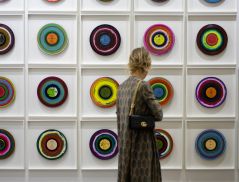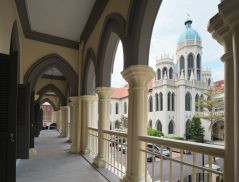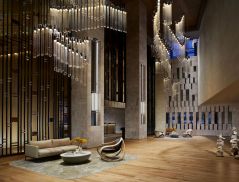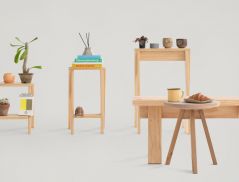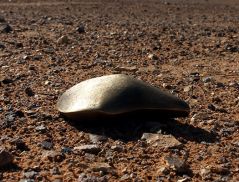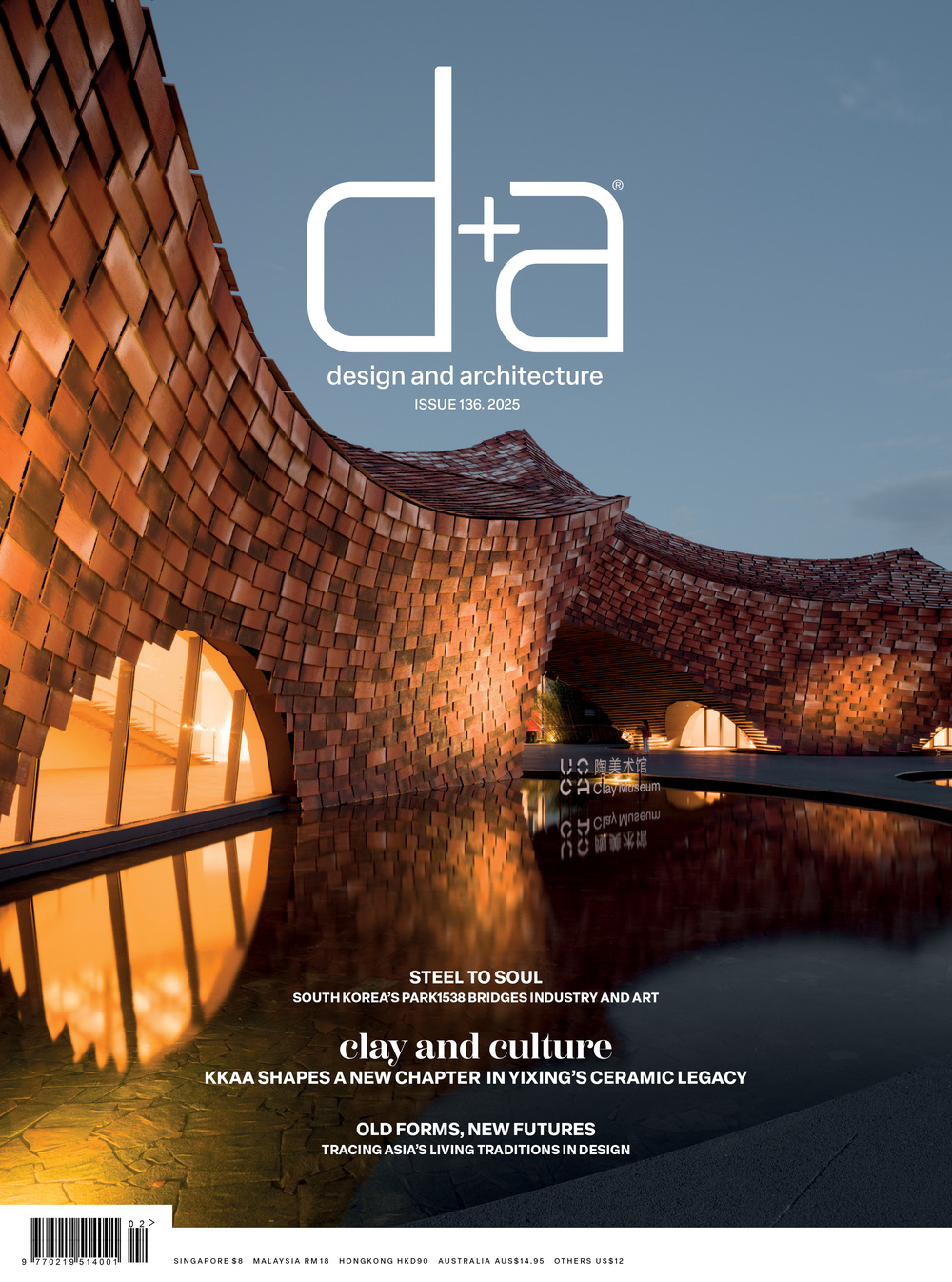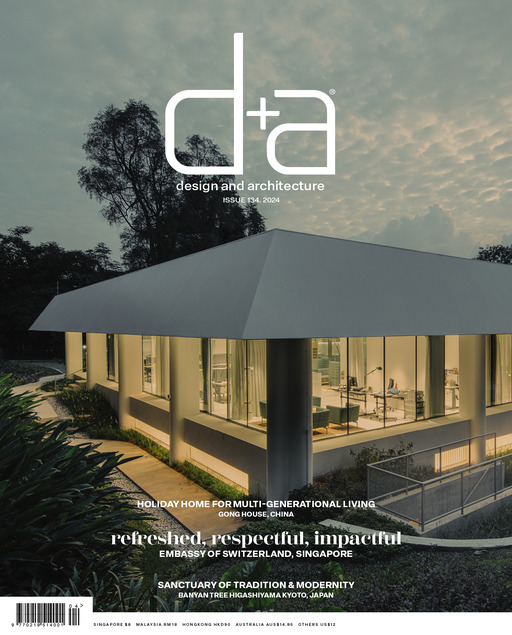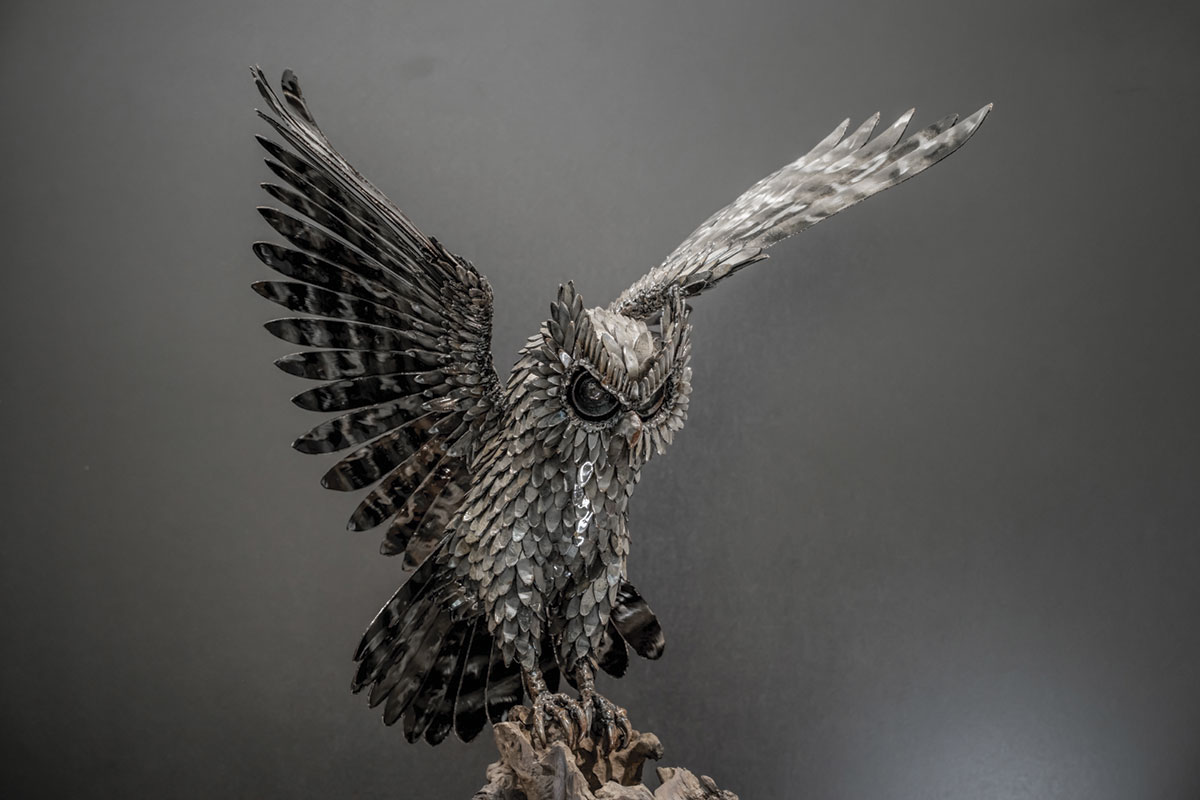
“Owning art is not just about acquiring a beautiful object; it’s an investment in creativity and cultural heritage,” says art gallery Planet Earth. But Planet Earth’s ethos goes beyond just being a platform for diverse artistic voices and showcasing pieces that embody the vision and cultural influences of established and emerging artists - it also wants to do right by the environment.
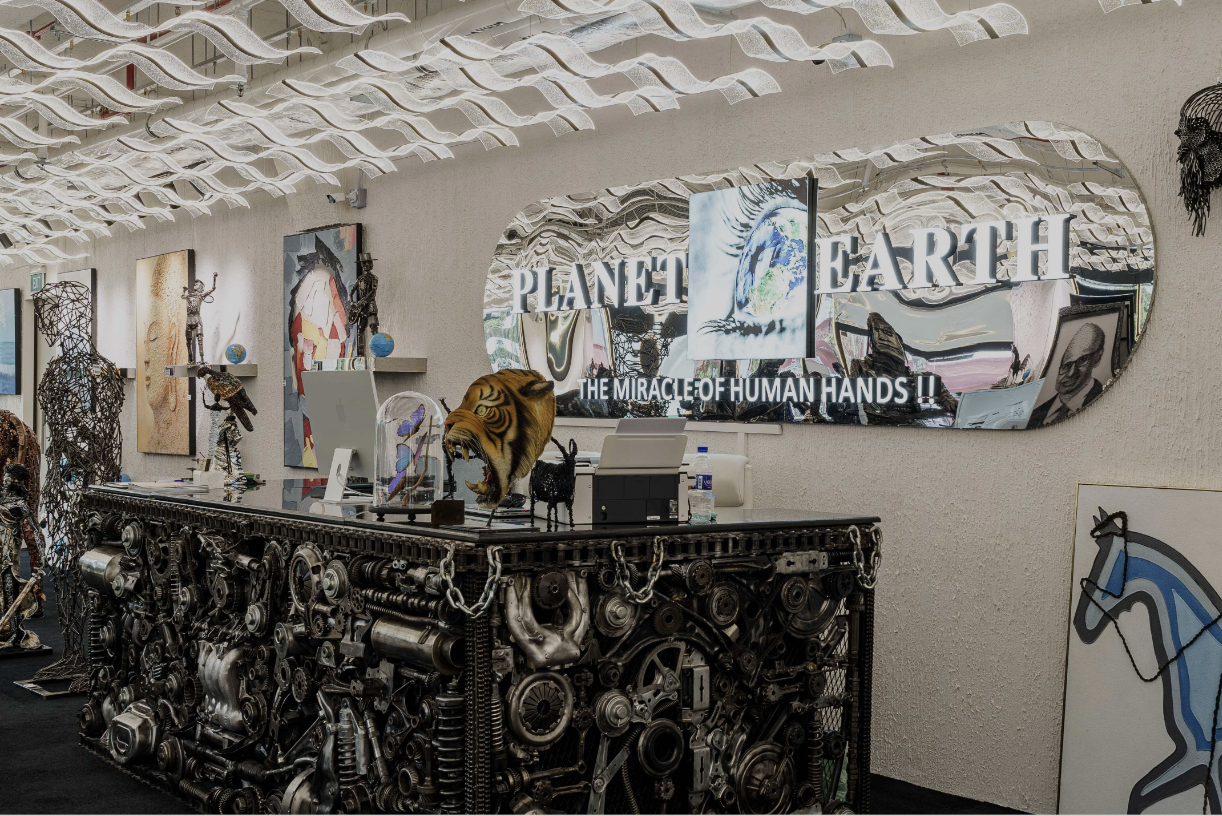
Founded in 2023 by artist and avid art collector Raghu Kabadi, Planet Earth’s commitment to being a gallery that champions sustainability alongside artistic excellence means it partners artists who share the same commitment to sustainability.
These are artists who either make use of recycled metal, salvaged parts, and unexpected materials to create sculptures, paintings and installations, or employ sustainable processes and mediums during their art creation. In doing so, Planet Earth empowers artists to “breathe new life into discarded objects”, and “transform them into captivating pieces, each one telling a story of resilience and renewal”.
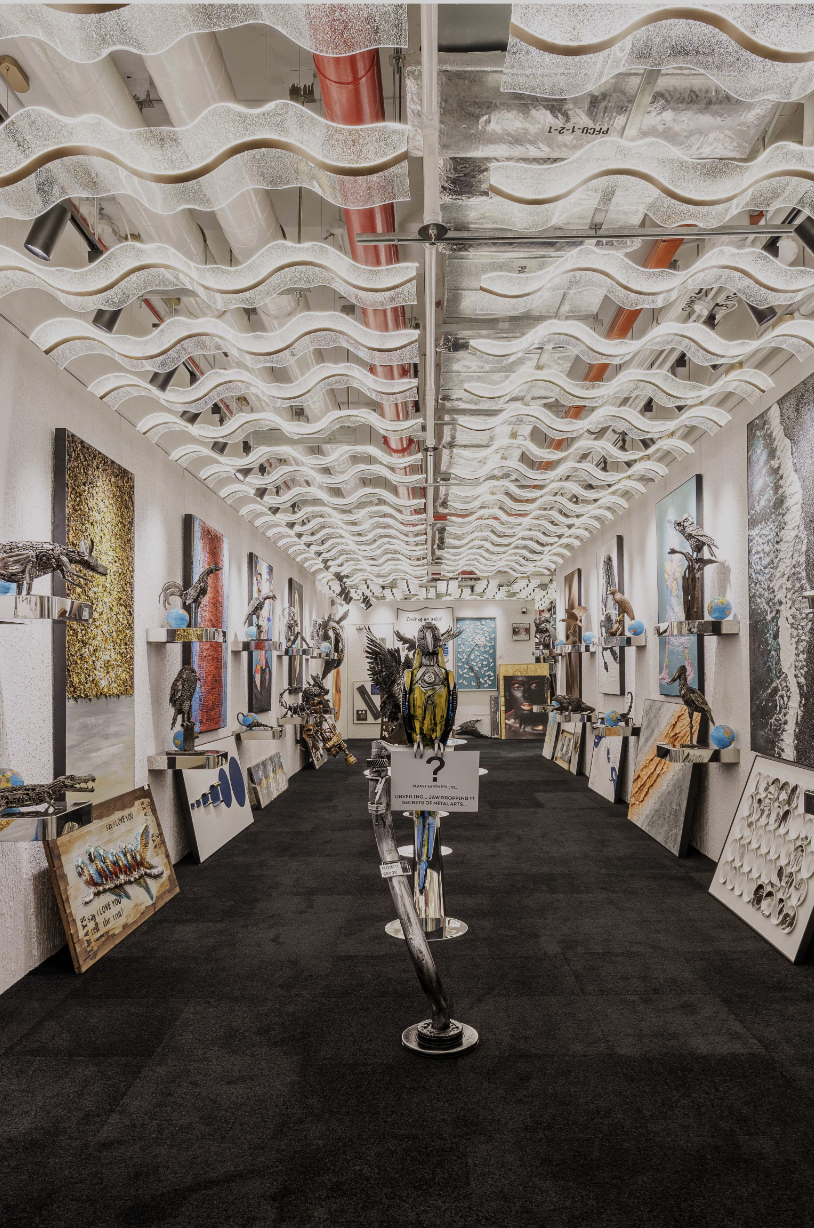
With the art world’s reckoning of climate destruction in recent years through environmentally conscious art and art exhibitions that call for greater discourse on conservation, Planet Earth’s focus on sustainable art pieces puts it in good stead to steer art-related conversations for the greater good here in Singapore.
Its 5,000 square foot gallery – Singapore’s Largest art gallery focusing on sustainable art – is dedicated to showcasing a diverse range of artistic mediums, all with a sustainability slant. There, visitors can view the works of various artists who have utilised recycled materials and waste to create thought-provoking sculptures and installations - such as portraits of famous public figures created entirely from nails, and life-sized metal animal sculptures that evoke a sense of loss and a call for environmental conservation.
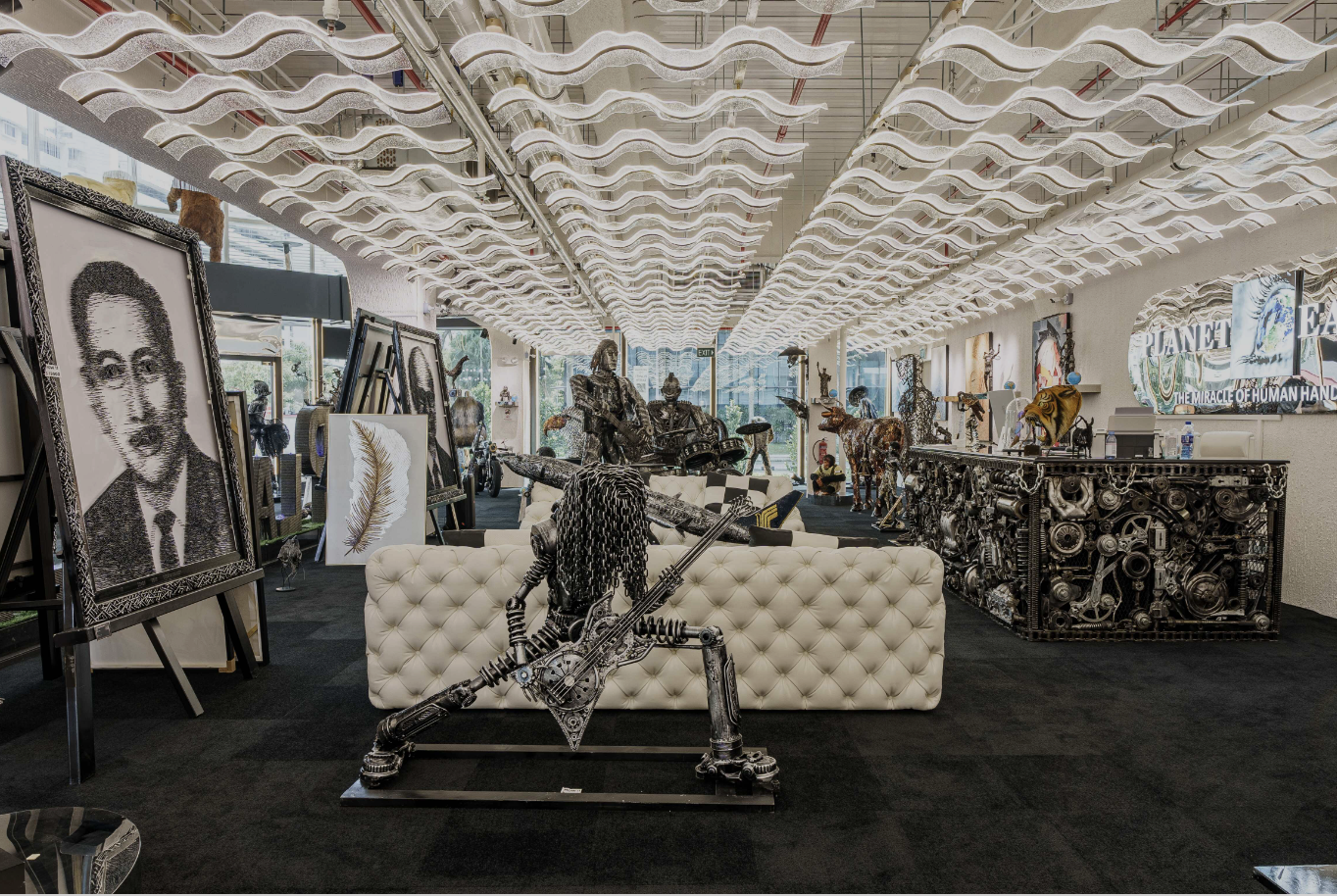
More than just an artistic endeavour without consideration for its impact on the environment, the gallery also ensures that it walks the talk, and partakes in eco-friendly practices.
Energy-efficient lighting and climate control systems for instance, are used throughout the gallery, while on-site recycling helps to create new resources from used materials. Artwork displays, packaging and gallery construction materials, where possible, all make use of recycled and sustainable materials.
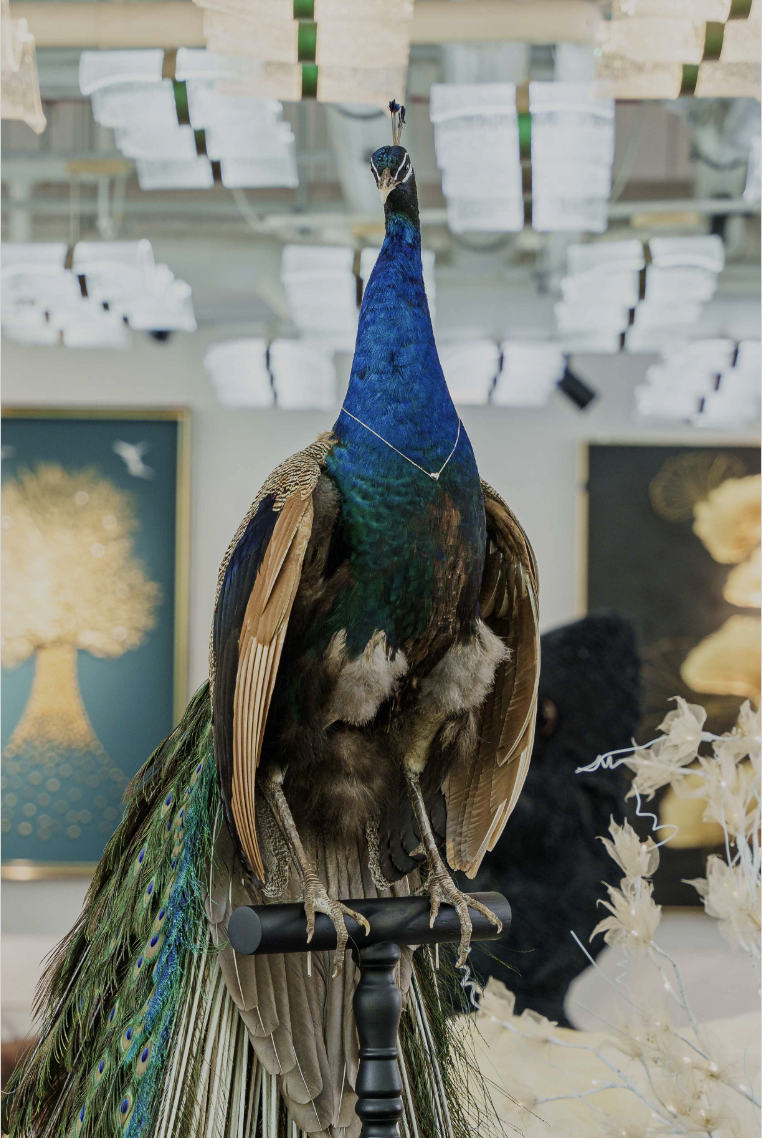
As with all important movements in history, the efforts of a single entity is less likely to have the same impact as that of a like-minded community. To spread the word on the importance of being sustainable, Planet Earth also actively seeks collaborations with other entities, such as local and international environmental organisations and art galleries and museums for joint exhibitions and artist exchanges. Its most recent partnership with Novotel Singapore on Stevens showcases eco-conscious art installations within the hotel’s premises and is aligned with the hotel’s own sustainable commitment to reduce its carbon footprint via the use of biodegradable straws, partnerships with local organisations and donating recyclable materials for creative use.
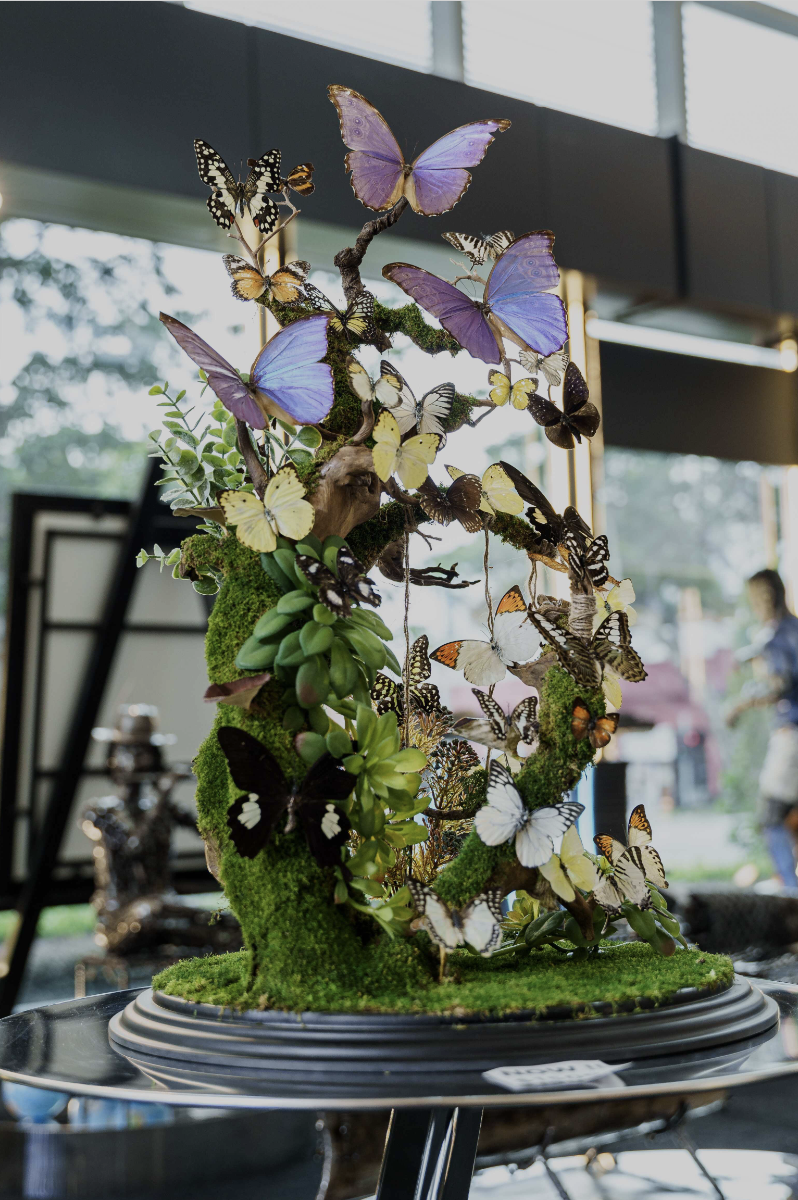
It is still early days yet, but in the long run, Planet Earth hopes to not only raise awareness of sustainable art within Singapore, but also within Southeast Asia, where it aims to become a regional hub for sustainable and innovative art. And if art is an investment in creativity and cultural heritage, sustainable art is also an investment into the future of our planet’s wellbeing.
Find out more about Planet Earth’s art at their showroom located at 70 Bendemeer Road, #01-02, 339940 or visit theonlyplanetearth.com


 Share
Share
